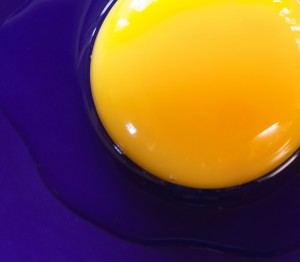A Complimentary Lesson about Complementary Words
February 25, 2011 by GradingGirl
Filed under Grammar, Mini-Lessons
I just read an essay in which a student wrote “I gave a complement to the author after the presentation.” This prickly pair needs clarification. Here’s my complimentary mini-lesson on these two complementary words:
Complementary vs. Complimentary
Entities that go well together are complementary.
The colors blue and gray complement each other.
Two people who complete each other are considered complementary.
___________________________________
Complimentary refers to items given without charge, usually offered in addition to a product or service purchased. Additionally, it means to praise someone.
The hotel provides a complimentary breakfast to patrons who stay overnight.
The PR Vice President was very complimentary to the qualified intern candidate.
GG hopes this complimentary lessons complements your vocabulary!
All Together Now . . . Don’t Be Altogether Confused
February 4, 2011 by GradingGirl
Filed under Grammar, Mini-Lessons
This particular prickly pair of words gets my students pondering.

All Together Vs. Altogether
A. All Together means:
1. at the same time
One, two, three, all together, sing: “Sweeeeet Caroline, bum, bum, bum . . . .”
2. as a group
Let’s go to hot yoga all together: it’s much more fun that way and we can laugh as we try to hold our balance!
B. Altogether means:
1. completely
Tyler didn’t take his dog to the vet to put her to sleep until she was altogether listless and lifeless. He kept saying that she was okay, and it was very sad.
2. total
The books that shipped today were 130 copies of Great Expectations, 50 copies of “Romeo & Juliet,” and 30 copies of The Odyssey: 210 copies altogether.
3. considering everything
Altogether, it was a fabulous trip, despite the painful sun poisoning on my feet. . . .
GG mnemonic (memory trick): remember that all together – because it’s two separate words – is the one that needs to get into a group and get in sync. This associates the meaning with the spelling to help you remember which of these words is which.

